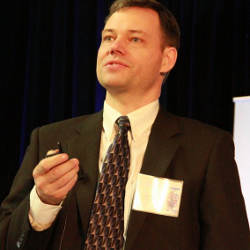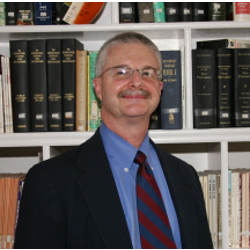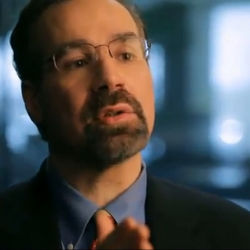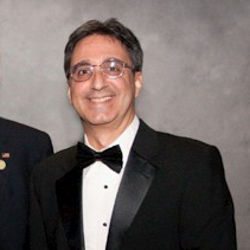Communications of the ACM
Watson Leader Among Eight New IBM Fellows

Credit: brandwallpapers
IBM announced Wednesday (May 4) that it has named eight new IBM Fellows — the company's most prestigious technical honor. The eight were recognized for their breakthrough achievements, their standing as worldwide leaders in their fields of endeavor, and for delivering tremendous value for IBM, its clients and shareholders.
The new IBM Fellows are responsible for advances in areas as diverse as deep computing, cloud services and virtualized systems to stream computing, analytics and workload optimized systems. David Ferrucci, the principal investigator of Watson — the computer system that competed against top Jeopardy! champions and earned world-wide notoriety in both the scientific and business communities — was among those honored.
"The 2011 IBM Fellows join a distinguished group of IBM's finest innovators," said Samuel J. Palmisano, IBM chairman of the board, president and chief executive officer. "For all of us at IBM, our work is grounded in the belief that teams of dedicated women and men, applying intelligence, science and technology, can tackle the biggest problems and make the world literally work better. This belief has guided our company for 100 years and it will continue to guide us as we start our second century. These new Fellows will be instrumental in how we shape the future."
The eight employees who have earned the coveted distinction of IBM Fellow this year are:
Bob Blainey, Software Group – Newmarket, Ontario
Bob Blainey is recognized for his distinguished record of innovations that synergize hardware and software technologies. For more than two decades,  he has focused on ensuring not only that software can exploit hardware capabilities optimally, but also that hardware designs evolve to support higher-performing software. His achievements include breakthrough innovation in compiler technology, leadership of IBM's Java technology, and, most recently, his strategic responsibility for next-generation systems in IBM Software Group. Blainey's range of expertise — in computer architecture, programming language design, and parallel systems — enables a holistic approach to software optimization and collaborative processor design that has delivered dramatic improvements in system performance.
he has focused on ensuring not only that software can exploit hardware capabilities optimally, but also that hardware designs evolve to support higher-performing software. His achievements include breakthrough innovation in compiler technology, leadership of IBM's Java technology, and, most recently, his strategic responsibility for next-generation systems in IBM Software Group. Blainey's range of expertise — in computer architecture, programming language design, and parallel systems — enables a holistic approach to software optimization and collaborative processor design that has delivered dramatic improvements in system performance.
Bradford Brooks, Corporate – Longmont, Colorado
Bradford Brooks has been appointed an IBM Fellow in recognition of his sustained achievement and leadership regarding IBM's involvement with complex materials that  are used in the electronics and information technology industries. Brooks is a recognized expert in the field of toxicology with a particular emphasis on manufacturing processes within the information technology industry, toxicology risk assessments for IT products, technologies and materials that are newly emerging for industrial use, environmental risk management, industrial chemical security, and chemical management laws and regulations. He has marshalled innovative scientific approaches to effectively address the broad interests of IBM and its clients underscored by publications, intellectual property and proprietary assessment models.
are used in the electronics and information technology industries. Brooks is a recognized expert in the field of toxicology with a particular emphasis on manufacturing processes within the information technology industry, toxicology risk assessments for IT products, technologies and materials that are newly emerging for industrial use, environmental risk management, industrial chemical security, and chemical management laws and regulations. He has marshalled innovative scientific approaches to effectively address the broad interests of IBM and its clients underscored by publications, intellectual property and proprietary assessment models.
David Ferrucci, IBM Research – Yorktown, New York
David Ferrucci is recognized for making unprecedented progress in Machine Question-Answering. He has led teams consisting of 20-plus researchers and software engineers  inside and outside of IBM, specializing in the areas of Natural Language Processing, Software Architecture, Information Retrieval, Machine Learning and Knowledge Representation and Reasoning.
inside and outside of IBM, specializing in the areas of Natural Language Processing, Software Architecture, Information Retrieval, Machine Learning and Knowledge Representation and Reasoning.
He is the principal investigator for DeepQA, the exploratory research project that provided the architecture for Watson — winner of a landmark contest against two champions on the Jeopardy! television quiz show. His approach to intelligent systems uses a scalable, integrated combination of diverse algorithmic techniques rather than any single algorithm. Building on his previous contributions as chief architect of the Unstructured Information Management Architecture project, Ferrucci's work has significantly advanced the science and engineering of intelligent systems.
Nagui Halim, IBM Research – Yorktown, New York
Nagui Halim's technical vision and leadership launched the era of stream computing at IBM. In response to a client request in 2003 to create a new architecture for high-speed adaptive stream processing and analytics, Halim recruited and assumed leadership of a large interdisciplinary research team, working in close and novel collaboration with the client, to undertake this formidable project to develop a new type of computing system able to manage and analyze massive volumes of continuous streams of data, which became known as System S. As the technical lead on System S, Halim developed the foundational concepts and designed the architecture for this new computing system.
Steve Hunter, IBM Research – Raleigh, North Carolina
Steve Hunter is a foremost industry expert in networking technologies and network computing convergence. He has had leadership roles in the development of numerous systems, technologies and standards across System x and BladeCenter, Grid and Cloud Computing and Virtualization and, most recently, in defining IBM's network-optimized systems and technology. Hunter's most recent role is chief systems architect for network-optimized computing systems. He is renowned as a technical expert across academic and industrial domains.
Stefan Pappe, Global Technology Services – Heidelberg, Germany
Stefan Pappe is the leader of the Specialty Service Area for Cloud Services in IBM's Global Technology Services Delivery Technology and Engineering organization. Pappe built the method-based framework of what actually makes up the technical core of productized service assets. It delivers the base for well-defined, consistently understood, technical artifacts, which has been fully embraced within IBM's services' development process. The initial realization of this concept was carried out in 2002.
Renato Recio, Systems and Technology Group – Austin, Texas
Over the past quarter century, Renato Recio has become a world renowned technical expert in Data Center Networking server IO, network virtualization, and related  architectures. He has led a wide range of cross-IBM teams working on IO and networking product development, technical strategy and industry standards. Recio has created numerous products and technologies that have dramatically simplified the deployment, management and operational complexity of large virtualized data centers. His efforts have resulted in numerous important industry standards which have dramatically simplified the way virtualized data centers operate. His work has resulted in 97 patents issued and 80 patents pending. Recio is a very proficient technical author with a total of 13 technical papers published in refereed technical conferences or journals and over 50 presentations at refereed technical conferences.
architectures. He has led a wide range of cross-IBM teams working on IO and networking product development, technical strategy and industry standards. Recio has created numerous products and technologies that have dramatically simplified the deployment, management and operational complexity of large virtualized data centers. His efforts have resulted in numerous important industry standards which have dramatically simplified the way virtualized data centers operate. His work has resulted in 97 patents issued and 80 patents pending. Recio is a very proficient technical author with a total of 13 technical papers published in refereed technical conferences or journals and over 50 presentations at refereed technical conferences.
Wolfgang Roesner, Systems and Technology Group – Austin, Texas
Wolfgang Roesner is an expert in verification and has architected the verification tools and methodologies being used across all IBM systems. His accomplishments in the world-class verification methodology allows the design of the company's P7 and zGryphon processors. The verification methodology Roesner put into place is not limited to the IBM processor flows as it was shown to be extensible to games processors like Cell, Waternoose, Vejle as well as a the SoC processor Prism. Roesner is well known in the industry for his leading role in verification tools and methodologies. He is frequently invited to deliver keynotes at technical workshops and conferences. His book on "Comprehensive Functional Verification – The Complete Industry Cycle" is the most comprehensive practical verification handbook published and is widely used in the industry.
The IBM Fellows Program
The IBM Fellows program was founded in 1962 by Thomas J. Watson, Jr., as a way to promote creativity among the company's "most exceptional" technical professionals. The first appointments were made in 1963. The criteria for appointment are stringent and take into account only the most significant technical achievements. In addition to a history of extraordinary accomplishments, candidates must also be considered to have the potential to make continued contributions. IBM Fellows are given broad latitude to identify and pursue projects in their area of expertise.
The title of IBM Fellow is the company's pre-eminent technical distinction, granted in recognition of outstanding and sustained technical achievements and leadership in engineering, programming, services, science and technology. Only 231 individuals have earned this designation in the company's history, and, including the newly named Fellows, 69 are active employees. This year's group of Fellows has 199 years of combined IBM experience, has collectively been issued 218 patents and is comprised of five PhD's.
Examples of technology originated by IBM Fellows include:
- Reduced Instruction Set Computing (RISC) — the architectural basis for most high performance workstations and servers.
- Thin-film heads — for high-density disk storage devices.
- DRAM — the fundamental solid-state memory technology used in the industry.
- Relational databases — one of the foundational technologies of knowledge management.
- Virtual memory — allows many users to share a single computer.
- The Scanning Tunnelling Microscope — the first instrument able to image atoms.
- Fortran — one of the world's most widely used computer languages.
- The AT bus — the basic architecture for IBM personal computers.
- The first Gigahertz chip
More information on IBM Fellows can be found at www.research.ibm.com/resources/awards_fellows.shtml.
No entries found